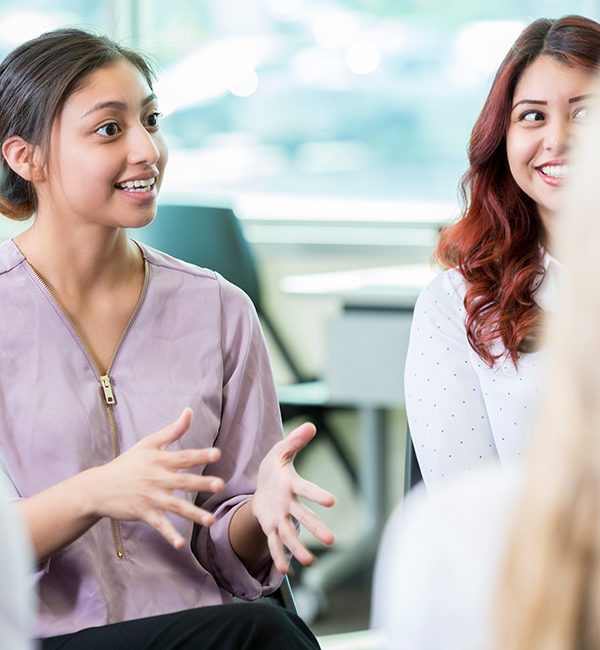By: Lucia Yepez Frias
Upon my Erikson acceptance letter to the Master’s of Social Work (MSW) program, I began to search for a scholarship to allow for me to accept this graduate school journey. There was a huge moment of being proud of myself for being accepted and then I ran into reality of being able to afford graduate school.
I found the Project Trauma-Informed Interprofessional Early Intervention Seminar (TIP) scholarship that was funded by the Office of Special Education Program (OSEP) on Erikson’s website. I immediately emailed about an application and further information on the scholarship. I had an interview with Dr. Linda Gilkerson and she welcomed me into the program. I then met with Dr. Pam Epley and she gave me further information on what the requirements were for this scholarship.
At the time I was working in a preschool as a Lead Teacher, and had worked in Early Childhood Education for a couple of years. It felt appropriate for me to seek out a scholarship that would be geared towards supporting my personal development as I went through my social work program, specifically with trauma.
The first class I took that was required for OSEP was the Prevention and Early Intervention course taught by Dr. Jennifer Rosinia and Nat Vikisreth. This class was the Fall semester of my first year in field. Every class we had an opportunity to brainstorm with peers that were in differing degree programs than I. I was able to learn and really understand why certain activities had benefits with clients and what was really happening developmentally as well as clinically.
In my second semester, the interprofessional trauma-focused early intervention began. We are a cohort of six and for three semesters we meet once a month. There are four MSW students with a concentration of Infant Early Childhood Mental Health and two Child Development students with a focus in Early Intervention. In these classes we have the opportunity to reflect on our readings and connect on our experiences in field.
As OSEP students, our feedback is asked at the end of each semester. There are four main themes that have come from students. First, interpersonal skills are best learned interpersonally from each other, from their relationships with their instructors, from observing their instructors’ interactions and ways of being. Second, the value of ongoing practicing practice through many roles plays in a judgment-free zone. Third, that learning over time is key. “I think …in something as difficult and triggering as trauma, there must be space for a lot of self-reflection that can’t be forced or sped up. So, taking the time to do it over a couple semesters, I think really helped give the time that it deserved to it.” Fourth, that trauma-focused training helped them secure jobs and feel ready for the work ahead. “I think that having all the training on trauma was one of the reasons that I got my job. It really prepared me for the field and for working with children in a way that a lot of other students have not been prepared to do.”
As Dr. Gilkerson states, relationships and reflection continue to be at the heart of an Erikson education and at the heart of trauma-focused practice.

Join the Erikson family with monthly news + events updates shared by academics, community members, and families.